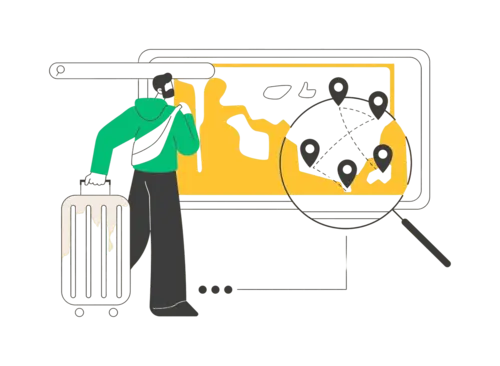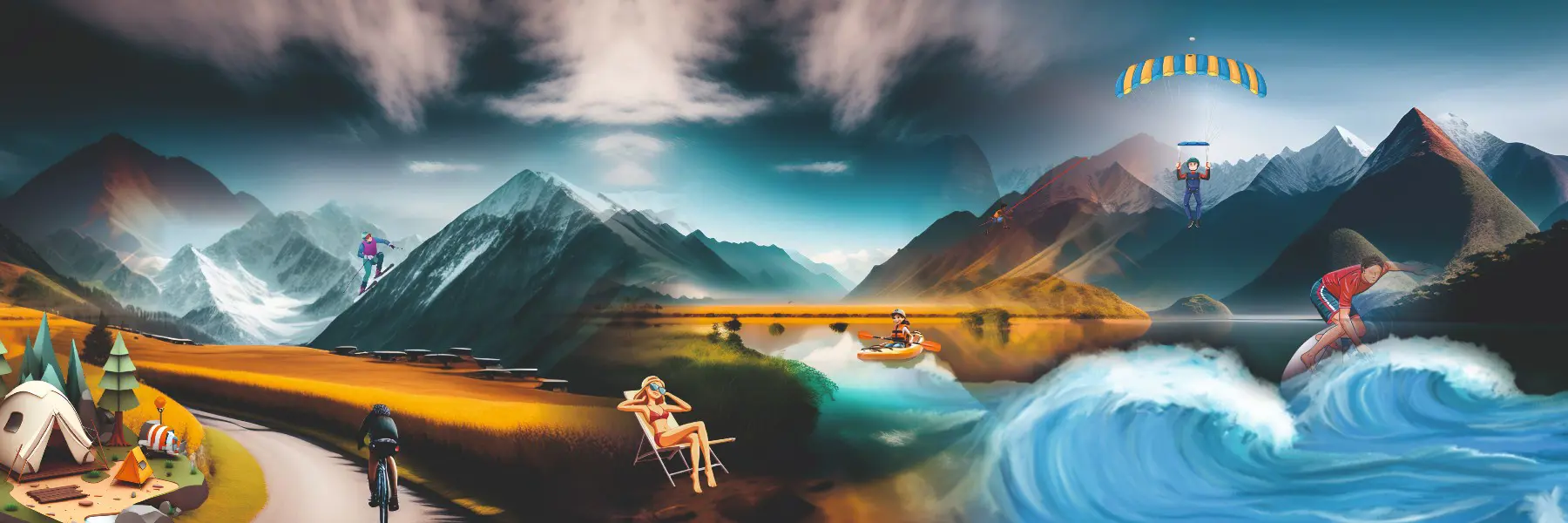Things To Do Near Rajmachi Fort Overview
Rajmachi Fort (Killa) is one of the many historical forts amidst the rugged hills of the Sahyadri mountains (Western Ghats). It consists of two twin fortresses, Shriwardhan and Manaranjan, with a wide machi (plateau) surrounding the two Balekillas. Udhewadi is a small village of about 60 households (as per the 2011 census report) situated on the machi at the southern foot of Manaranjan Balekilla of Rajmachi Fort. The fort played a strategic role in the First Anglo-Maratha War. Rajmachi Fort has been declared as a protected monument. There are two approaches to Fort Rajmachi: (a) from Lonavala and (b) from Kondivde or Kondhane village in Karjat Taluka of Raigad District. Lonavala – Rajmachi's distance is 15 km, and it is almost a plain walk, though there are a few ups and downs on this path. It is a three-and-a-half-hour walk to the place. Rajmachi can be reached by uphill climb from Kondivde or Kondhane village. This climb takes approximately two and a half hours for someone who is an experienced trekker. Suppose a Trekkers Group does not know the Trek Route. In that case, they may hire a local Route Guide. During the dry season after rains, i.e. from November to May, a strong and sturdy utility vehicle like Tata Sumo, Mahindra Bolero, Qualis, etc., can be taken right up to Udhewdi (Fort Rajmachi). The route is via Khandala, Kune village, Della Adventure Resort, Patel Dam, Phanasrai and Jambhali Phata. This route to Della Adventure Resort is well-paved. The rest of the stretch to Rajmachi Fort is a very potholed track and not driveable by regular four-wheeler cars, such as Maruti 800, Wagon R, Indica, Swift, etc. A sturdy utility vehicle like Tata Sumo can be arranged from Lonavla or Khandala to reach the fort. It is a comparatively easy trek , and vehicles drop you to the base village . From there, you need to walk for about 6 Km . It takes almost two hours. The best part about this trek for bike riders is that the roads are quite muddy and suitable for off-roading, and the most beautiful waterfalls are also along the way. The architectural structures of Ramjachi Fort are quite humble, especially in comparison to larger forts such as Raigad, Sinhagad, or Lohagad. Still, it has retained most of the typical features of a Maratha hill fort.Bastions and Walls: The perimeter of the fort is defined in terms of crumbling walls and bastions, which would originally have served as fortifications against attackers. Though walls stand in ruins these days, they give a glimpse of the former strategic relevance of the fort. Water Tanks: Almost all the forts in the region have many water cisterns or tanks to store rainwater. They would prove essential for surviving longer durations or during protracted sieges, as the fort was isolated and accessing water from nearby places was difficult. Ruins: Though the fort, in general, stands in a dilapidated condition, there lie some old structures scattered about the summit. These could have been administrative buildings, barracks, or even temples dedicated to local deities. Some believe that the fort even had a small temple dedicated to Lord Rama, given its name. Natural Defence: The fort, by coincidence, lay atop a hill. It had natural defences all around it: cliffs on all sides. This gave the fort an added advantage - it was very hard for invaders to come along the steep path through thick vegetation, which was about the only route to the summit. Not as famous or historically important as other forts in Maharashtra, Ramjachi Fort is worth a trip for history buffs, trekkers, and nature lovers alike. Situated in the remote corner, with relative silence prevailing, this is an ideal place to explore any offbeat Western Ghats fort site. Whether it's the history you're after, the scenic trek or some time in nature that you are looking for, one never finds too many reasons not to visit Ramjachi Fort, for it is a true hidden gem amidst the rich cultural and natural heritage of Maharashtra. Rajmachi Fort is another popular camping destination. Hikers go up to the fort and stay overnight in the base village or atop the fort. This is an ideal camping place around the fort because of the serene setting amidst the natural beauty. Basic provisions for accommodation, food, and pitching of tents can be arranged in the overnight halt at the base village, Udhewadi. Check Out: One Day Trip From Bangalore | Trekking Near Bangalore | Two Day Trip From BangaloreRAJMACHI FORT HIGHLIGHTS: Maratha Heritage: Rajmachi Fort was constructed under the Maratha Empire and was one of the most important forts that defended the region , especially during the time of Chhatrapati Shivaji Maharaj. It was strategically located for the monitoring and control of the trading routes. Anglo-Maratha Wars: The fort witnessed its action during the Anglo-Maratha wars and remained an important military outpost in the 18th century. Today, the fort lies in ruins, yet it speaks as parts of walls, temples, and water cisterns. Sahyadri Mountain Range: One can get clear panoramic views of the Sahyadri range (Western Ghats) and the beautiful valleys from this fort. The view that one gets on the trek is simply breathtaking, especially during the monsoon when waterfalls are seen everywhere. Ulhas River Valley: It offers an outstanding view of the Ulhas River valley, thus making it an even more scenic place. Greenery: The surrounding landscape of the fort is luscious and green, especially during monsoon. June to September is when the region gets greener and fuller with foliage, a treat to nature lovers and photographers. Ancient Buddhist Caves: Situated at the bottom of the fort, side by side, are these Kondana Caves , which are ancient Buddhist rock-cut caves that date to the first century BCE. BEST TIME TO VISIT: The best time to visit the Rajmachi Fort is between April and June , as well as between November and March. During these months, the weather is pretty pleasant, and the entire atmosphere turns into a beautiful display of ambient colours. July to October is the rainy season at the hilltop and needs to be avoided when visiting the Rajmachi fort. TIPS FOR VISITING RAJMACHI FORT: The rainy season is by no means one of the best times to see Rajmachi Fort as wet roads and slipper trails make it quite tiring and really tough to stay afoot, and the terrain may be a great problem to be crossed. Carry enough water with you so that incidents of dehydration do not take place. Make sure that you are wearing very comfortable clothes and shoes so that you do not feel uneasy. Since the trek is very long, ensure that you are fit enough to undertake the trek. A few days of exercising and stretching might be helpful. For the night trek, ensure that you carry sufficient torches and batteries with you, which will be very handy. HOW TO REACH Lonavala Railway Station is the nearest railway station to Rajmachi Fort. The nearest airport from which you can reach Rajmachi Fort is Pune International Airport, approximately 70-80 km away. Once you reach one of these transport hubs, be it the airports or the railway stations, you can hire a taxi or start walking to enter the Rajmachi Fort. Read: Nijagal Betta |Kaiwara Hill |Bheemana Kindi |Bananthimari |Bidarakatte


